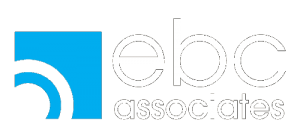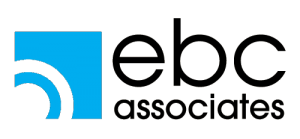In today’s diverse and inclusive workplace, fostering an environment that values equity and fairness is paramount. However, despite organizations’ best intentions, unconscious bias can seep into recruitment processes, influencing decisions and perpetuating inequalities. Unconscious bias refers to the automatic, ingrained stereotypes or attitudes that affect our understanding, actions, and decisions in an unconscious manner. It can lead to biased hiring decisions that disadvantage certain groups, hindering diversity and stifling innovation within an organization. To address this issue, proactive measures must be implemented to mitigate unconscious bias in recruitment processes.
- Awareness and Education: The first step in combating unconscious bias in recruitment is to raise awareness among hiring managers and recruitment teams. Providing education and training sessions on the concept of unconscious bias, its impact on decision-making, and strategies to mitigate it can help individuals recognize their own biases and understand how they manifest in recruitment processes. By fostering a culture of self-awareness and continuous learning, organizations can empower their teams to make more objective and inclusive hiring decisions.
- Standardized Recruitment Practices: Implementing standardized recruitment practices can help minimize the influence of unconscious bias. This includes creating structured interview processes with predetermined questions and evaluation criteria that focus on job-related competencies rather than subjective impressions. Additionally, using blind recruitment techniques working with anonymous resumes by removing identifying information such as names, gender, and ethnicity can help prevent unconscious bias from influencing initial screening decisions.
- Diverse Hiring Panels: Incorporating diverse hiring panels can bring a variety of perspectives to the evaluation process and help counteract unconscious bias. When multiple stakeholders with different backgrounds and experiences are involved in assessing candidates, it reduces the likelihood of homogeneous thinking and encourages more comprehensive evaluations based on merit. Diverse hiring panels can serve as role models for inclusive behavior, setting a precedent for equitable decision-making throughout the organization.
- Objective Performance Metrics: Establishing clear and objective performance metrics for evaluating candidates can help minimize the impact of unconscious bias. By focusing on quantifiable indicators of success, such as skills, qualifications, and past performance, recruiters can make more data-driven decisions and reduce reliance on subjective judgments. Additionally, regularly reviewing and analyzing recruitment data can help identify any patterns of bias or disparities in hiring outcomes, enabling organizations to adjust their strategies accordingly.
- Implementing Technology Solutions: Advancements in technology offer innovative solutions for mitigating unconscious bias in recruitment processes. Artificial intelligence (AI) tools can be utilized to screen resumes and assess candidates based on predetermined criteria, removing human bias from the initial screening stage. Furthermore, AI-powered algorithms can help identify and flag biased language in job descriptions and marketing materials, prompting organizations to make necessary revisions to promote inclusivity.
- Cultivating Inclusive Organizational Culture: Creating an inclusive organizational culture is essential for reducing unconscious bias in recruitment processes. When employees feel valued, respected, and included, they are more likely to advocate for diversity and equity in hiring practices. Organizations can foster inclusivity by promoting diversity and inclusion initiatives, providing training on cultural competency and sensitivity, and actively seeking input from underrepresented groups in decision-making processes. By prioritizing diversity and inclusion at all levels of the organization, companies can attract a more diverse pool of candidates and foster a culture of belonging.
- Regular Evaluation and Improvement: Continuous evaluation and improvement are essential for ensuring the effectiveness of efforts to reduce unconscious bias in recruitment. Organizations should regularly assess their recruitment processes, solicit feedback from stakeholders, and track key performance indicators to measure progress over time. Additionally, conducting regular audits and reviews of recruitment practices can help identify areas for improvement and inform adjustments to strategies and policies as needed.
Reducing unconscious bias in recruitment processes requires a multifaceted approach that encompasses awareness, education, standardized practices, diversity, technology, inclusive culture, and ongoing evaluation. By implementing these strategies, organizations can foster more equitable and inclusive hiring practices, resulting in a workforce that reflects the diversity of the communities they serve and driving innovation and success in the long run.

